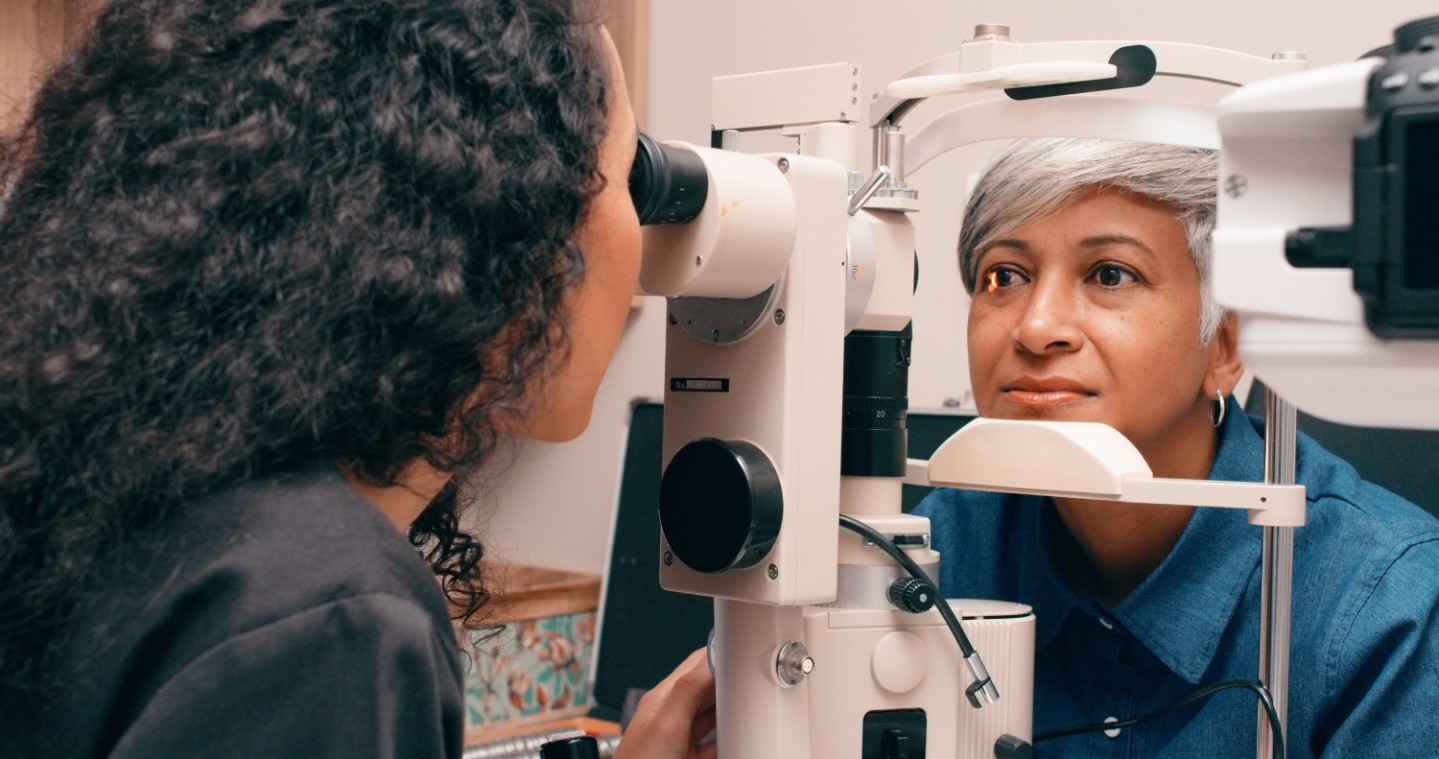If you’re living with diabetes, you probably know it’s crucial to watch your blood sugars and keep your doctor’s appointments. But have you scheduled your yearly eye exam?
Some people put off this appointment if they’re not having vision problems. But yearly eye exams are just as crucial as other aspects of your diabetic health. Consider these statistics:
- More than 1 in 4 people who live with diabetes have diabetes-related retinopathy, the leading cause of blindness in American adults, according to Prevent Blindness.
- 90% of blindness in U.S. adults caused by diabetes is preventable, according to the Centers for Disease Control.
Because diabetic eye diseases can progress silently and without obvious symptoms, yearly eye exams are essential for early detection to prevent vision loss. Here’s more important facts every diabetic should know.
Fact: Diabetes raises your risk of several eye diseases.
Diabetic eye disease is a group of eye problems that can occur in people with diabetes. They’re caused when high blood sugar levels damage the blood vessels in the retina, the light-sensitive tissue at the back of the eye. This damage can lead to vision loss, and in severe cases, blindness. Specific diabetic eye diseases include:
- Diabetic retinopathy. The most common type of diabetic eye disease, this is characterized by damage to the blood vessels in the retina.
- Diabetic macular edema (DME). Swelling in the macula, the central part of the retina responsible for sharp central vision.
- Diabetic neuropathy. Nerve damage that can affect the eyes, leading to problems with eye movement and pupil response.
- Cataracts. Clouding of the natural lens of the eye.
- Glaucoma. Increased pressure inside the eye, which can damage the optic nerve.
Fact: High blood sugars aren’t the only problem.
It’s true that high blood sugars can cause diabetic eye diseases, but fluctuating blood sugars can also take a toll on your eyes. The rollercoaster of up and down blood sugars can damage your eyesight due to changes in the viscosity of the fluid behind the eye.
Fact: A diabetic eye exam is painless.
The specific test is a retina screening. It involves taking a picture of the back of your eyes while they’re dilated. The process is painless, though it may cost around $40 if it’s not covered by insurance. You can see an optometrist or ophthalmologist for this exam, as long as they are equipped to do the retina screening.
Fact: People of color are at higher risk of diabetic eye diseases.
All patients with diabetes are at risk, but non-Caucasian people of Hispanic, Native American, Asian and African American heritage are at a higher risk.
Fact: Eye symptoms should also always be checked.
If you notice any of the following eye symptoms, even if they are temporary, talk to your provider and arrange an eye exam as soon as possible.
- Blurry vision
- Floaters or dark spots
- Flashes of light
- Difficulty seeing at night
- Pain behind the eyes
Fact: You can reduce your risk for diabetic eye diseases.
Keeping good control of your diabetes helps prevent or reduce diabetic eye disease. Key things to pay attention to include:
- Maintaining a healthy diet.
- Managing blood sugars to keep them under control.
- Keeping your cholesterol and blood pressure under control.
- Not smoking or vaping.
Diabetic eye disease can lead to blindness, but with proper management and early intervention, you can significantly reduce your risk of vision loss. Simply getting yearly eye exams can help protect your vision for years to come.
Reach out to our Diabetes Education team for more information.





